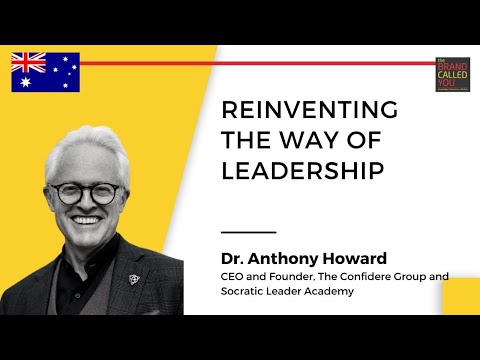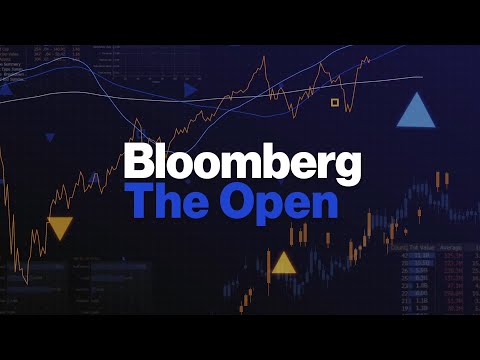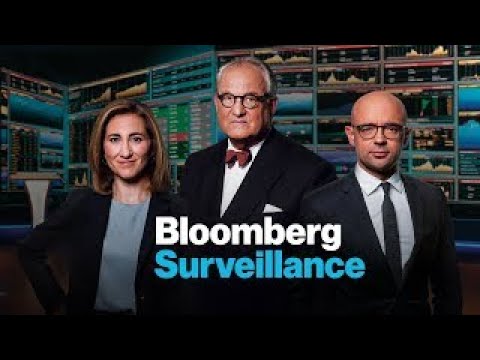The STORY of the CEO Whisperer and BUSINESS PHILOSOPHER | Dr. Anthony Howard | TBCY

Welcome to another episode of The Brand Called You. A vodcast and podcast show that brings you leadership lessons, knowledge, experience and wisdom from hundreds of successful individuals from around the world. I am your host, Ashutosh Garg and today I have with me a very, very accomplished leader from Sydney, Australia. Mr. Anthony Howard. Anthony, welcome to the show. Thank you, Ash, it's such a delight to be here. Thank you. Anthony is the CEO and founder of The Confidence Group, and the Socratic Leader
Academy. He is an author and all of you who listen to me know I'm very partial to authors, his book titled Humanise - Why Human-Centred Leadership is the key to the 21st Century, we will talk about. So let's start Anthony with asking you a question. Why are you known as the CEO whisperer, and a business philosopher? It's an interesting mix, isn't it? Can I take you back to a story many, many years ago? Yes. I see in your background there the map of the world, I grew up in a small rural part of Australia. And when I finished school, I went away to see I was a navigator in the merchant navy and so sailing many of those, those oceans. But as a young man, I had an extraordinary experience. I found that I would
be on watch in the middle of the night and it's dark and the ship is you know, going through the cutting through the water and I would hear someone coming up the stairs and so one night a man comes it was all men on the ship you know, I hear a man upstairs and he part the blackout curtain and he looks through and he kind of looks around and gets his night vision. And he finds me out on the wing of the bridge and he walks out and he stands beside me and says let's call him Brian. And Brian stands beside me. And we're both looking out at the horizon. And he says, I've set a telegram for my wife, she's just going to leave me and and I had this kind of experience repeatedly with people would come and tell me the most kind of tragic and awful things that they were facing that they were powerless to do anything about, because we're stuck out on a ship, you know, weeks away from port. This was of course, before the days of the internet, you couldn't get on the phone or send an email.
And so he just needed someone to talk to. Right. And I said to Brian, that must be tough. And Brian wasn't looking for advice. He was just looking to be seen or heard and understood. And that's kind of what most of us are looking for. We're just looking for someone who's going to be there for him who's going to hit see them, hear them and understand. And I didn't really know them that, that would be the seeds of my eventual career as you know what became the CEO whisperer people have called me. I wouldn't give me that title
myself. But one of the things about a horse whisperer. Horse Whisperer are prey animals rather than predators. And they develop a highly tuned sense of their environment and the other if you like, and so because the environments I inhabited, were very brutal, it was a brutal world. I developed this high degree of awareness of people and where they're at. And so it gave me a facility to be able to sit down with a CEO, a big personality, if you like.
And create a safe space for them where they could talk about the stuff that really mattered to them, knowing that they weren't going to be judged. They were just going to be seen and heard and understood. And that's probably why people call me the CEO whisperer. Okay. And the business philosopher arises, I've always been curious. And I pursued, you know, advanced studies in philosophy, I have a doctorate in philosophy. And so the ability to kind of ask questions and seek meaning and purpose, that would be why they also call me both a philosopher and a whisperer. Wow, wow. And I guess that's where your group the Confidere comes from, which is from confidence is it? Well, Confidere comes from the Latin together in trust and so I had started this kind of life as a mentor, more than 20 years ago.
But I found I became a confidant more than a mentor. And so people would kind of take me into their confidence and so they might present with a business problem in the initial stage, you know, growth challenges, strategic challenge. But over time, the relationship more difficult if you like, or evolved into much more one of a confidant. Someone that they could talk to and say, Hey, this is I just needed run this by before I talk to the board or I'm thinking about this or whatever. So Confidere, right comes to that idea of being a confidant to, you know, a senior person. Fabulous. And as a mentor for senior leaders, what are some of the kind of challenges that you normally work with? They kind of broadly fall into four domains, the strategic operational, stakeholder and personal. And that's really the challenge for a leader to get those
domains balanced, you know, to pay sufficient attention to the strategic, the operational, that the people stakeholder stuff and themselves. And themselves often comes along last. And as you would know, and many of your listeners would know. But hidden in what I've just said, is the fundamental challenge for most leaders, and that is to figure out what are the things I need to do that really matter? Because for CEO, their to-do list, never, ever, ever get shorter. They don't come in tomorrow, go wow, look at that, I've got nothing to do
today. It's like I have so many choices, I've got to make the best decision that I can. And so to be able to give them clarity, this is probably where we do our prior work about the kind of endgame they're trying to create, which is go back to the navigation idea of a lighthouse, where am I going to get some clarity around that? And say, right, now I can make decisions in that kind of framework. And more than anything else. I now know what to say no to. Because I can't say yes to everything. Interesting. And what would you say is the difference between coaching and mentoring when you talk to senior leaders? I appreciate that for many people, that kind of means the same thing. And I appreciate
that in different countries, we have different understandings of coaches and mentors. And so if someone wanted someone to call the work, I do coaching or mentoring, I'm kind of comfortable with that. But the distinction that I would make, is, if I would look at for argument's sake, a cricketing analogy. You know, when you're selected the pride play for Australia or India or the UK, when you're selected for the team, you know, there's wonderful ceremony about being given the cap, or you know, the uniform or whatever, and you're proud to be part of the team. And almost certainly someone is going to say to you, hey, congratulations for making the team.
However, you're good enough to make the team, you're not good enough to stay on the team, and everyone else around the world. And so we're going to give you all these coaches, to be a batting coach or a fielding coach, or whatever your skill is, we'll give you coaches to develop your skills to ensure you continue to play at this elite level. But at the same time, the player would benefit from having a mentor and the mentor is someone who's played the game before. The mentor is someone that they can go to is probably a retired player, or someone has been close to other players, the mentor someone that go and say, Look, I'm finding it difficult, you know, I'm wondering about this, or I'm troubled by that, or I'm not getting on with the coach or I need to hone this skill. What do you think I should do? The mentor is someone that they can talk to about the stuff they really can't talk about with anybody else who understands their world. That's the distinction that I would
say. Fascinating. And my next question, before I move to the next segment, is, you know, we often talk about a mentor or a coach supporting different individuals and their challenges. My question to you is, how does a mentee, evaluate whether they have got a good mentor? One thing I think matters more than anything else. And that's been clear at the start,
why we're engaging together. And so the way I would frame that for a client is, you know, if we work together for 12 months, what will success look like? What do you expect to see, what will have shifted change development, and that gives them something to kind of keep measuring back against and to say, look, you know, this is what I've done. Something that still, I think, however, sets apart, great clients from others. So good mentees is the level of preparation they do. You know, I have clients that come and say, this, what's on the agenda? I need to think about this.
We spoke last time I've done that, you know, so in other words, they take the engagement very, very committed to their own growth and development. Yeah. Okay. So Anthony, let's not move on to the next segment and talk about your the other baby that you have, which is the Socratic Leader Academy. And you say that
you are on a quest to reinvent the way the world does leadership. Help me understand this particular vision or mission that you have and then we'll get into the more questions. Most of you listening would know, by looking at a leader saying what they say and do, how they value the person that they're talking to a lady. And my concern over many, many years is, is I see people being treated as resources
or assets being treated as units of economic production being said, people are our greatest asset. And do we get rid of that asset real fast that we can afford to keep them and so people were just treated not as Anthony or Ash, you know, not as someone's husband or wife, brother or sister, but as just a disposable asset, and that really, frankly, really riles me. And, it's just so unnecessary. And so we're just on a mission to change that. Correct. Correct. And, you know, moving on, you say, you're restoring human dignity to business, government and civil society. Help me understand this with an example or an anecdote. That's the grand plan. And bearing in mind, we're still in the startup phase, but
that is the grand plan. And so dignity, dignity addresses this issue, you know, of the value of the person, so the person is not a worker, but as I said, you know, their husband, father, you know, brother, sister, and so forth. So, you know, for example, I was with a firm a while back. And we'd spent the day talking about human-centered leadership, caring for people, being a person at work, turning up hearing your story, all those very human kind of things. And then at the end of the day, one of the leaders of the firm join the
meeting, and both kind of summarize what happened in the day, but also gave an update on what was happening in the firm. And the distinction that I would make is we'd spent the day in essence talking about a human system. And he started talking about an economic system, delivering the numbers, making sure your people performed, productivity. That's the distinction. You know, we want to be sure that when we talk about people, we're talking about people. COVID has given us so many examples, I was reading in the newspaper here in Australia the other day, about a COVID case, who came in on an aeroplane from somewhere, and then the case visited a bottle shop and a supermarket. And then the case went home to their family. And then the
case went to work the next day, this was not a case. This was a person. This was a person who happened to have COVID. This was not a case. And we use this kind of language very subtly. But it strips us of our dignity, that's why we're on a mission to restore. What you're saying is we are dehumanizing humans.
We dehumanize all the time inadvertently, because we label people and we forget who they are by using the labels. It's tragic. Well said. And when you say actually, you are reinventing leadership, help me understand what are some of the challenges that you think exist in current leadership that you want to be able to correct or reinvent? It comes down to this whole thing that you know, the management schools and so forth, built around case studies, built around economic kind of systems, I accept that. So I'm not saying that's, you know, morally bankrupt or whatever. All I'm saying is we've lost sight of the person. And so we train people to, you know, succeed on numbers, we celebrate the numbers, we celebrate their successes. And
if I talk about human-centered leadership, and talk about, you know, putting persons first, the audience will nod in agreement, and someone will invariably put up their hand and say, Dr. Howard, what's the business case for this? And so I'm tempted to say well, do you want me to give you a business case for treating people badly? And in other words, it should just this is the morally right thing to do. But I understand why they're asking it because they want to go back to their boss to do things, I've got to go to my board and say, hey, if we treat people the right way, this could be the impact on the numbers. Now,
there's numerous case studies that prove the value of it. But the proof point for me will be in the years to come. Someone will put up their hand and say, Hey, come and show us how to do it. they'll no longer be saying, prove to us why it's right. Well, now it's right. We'll say it's been done. And we'll just want to know how to do it. That's so amazing. You know, and there's so many people when they talk to me on my platform, and this is what's your monetization model. I said nothing. I said, this is my way of giving back and this is what how can you do something like this.
So I fully understand what you're saying about people saying what's the business case. Moving on. You also have a four dimension proprietary model to build Human-Centered environments. I'd love to understand a little more.
So this was the central piece of my PhD research is that it was driven by this concern about people being treated as a means to an end. And so when I looked at leadership, and almost everything that's written about leadership talks about what leaders do, it talks about traits, it talks about attitudes, behaviors, competencies, and so forth, what I call the ABCs. But I looked at and said, well, leadership, I think is fundamentally a person leading another person. And so what does it mean to be a person leading a person. And so the model says, a
person which will be a whole nother conversation, but a person is someone who is a meaning-seeking entity we seek we seek purpose, a person is someone who is relational, we grow in relationship with others, a person is someone who is responsible, we're self-determining, we want to make and be free to make our own choices. And a person somewhat paradoxically, becomes who we are by self-giving, by gift rather than by taking. And so those four dimensions, say, you know, I become fulfilled as a person, by finding my meaning, by having quality relationships, by taking responsibility for my life, and by finding where I can use my gifts. And so if that's what it means to be a person, leading a person, if I'm
a person leading another person, then leadership is fundamentally a relationship between two, two or more people and getting that relationship, right. It's fundamentally about being clear about what our responsibilities are in this leadership relationship. It's fundamentally about understanding where we bring our gifts to be in service of one another for that, and so what's really interesting, however, is I don't follow a leader, which is the classic kind of model, but the leader and I happen to have different roles and responsibilities. But later on, we follow in good organization, a purpose or common good. So the purpose sits outside
ourselves. So when you say this is what it means to be a person, those four dimensions, it's very easy then to say, so therefore, the four dimensions of leadership mirror that. Fascinating. So let's now move to the last segment of a conversation, which is about your book. You've written a book title, Humanise - Why Human-Centred Leadership is the key to the 21st century. Tell me a little bit about your book and your hypothesis. The book came from a number of conversation I'd done with leaders around the world and then talking about what they saw emerging in the world. And the kinds of challenges confronting the world. And the question that arise from that is, well,
where are the leaders who can help us navigate what's coming, and no one had an answer. And then one day frame to that Monday, someone framed that as well, where the new Mandela's this, you know, where the new Mandela's, where the new Mother Teresa's, the new Martin Luther King's, you know, and what they were driving at was, there's a kind of leader who stands above everything else who sees beyond that, who actually sees the person in some sort of way, the human-centered in some kind of way. And so, so that was the thrust for the book to say, how do we find and develop? How do you and I become because what our grasp was the man that visti your earlier observation was the Mandela's might be rare. There are actually
1000s and 1000s and 1000s of people with you and I, it's our listeners, it's every one of us, who has a mission and a purpose. And if we step up for that, and be the person we were called to be, we're going to be that new Mandela, and the challenges confronting the world today, the depersonalizing, dehumanizing challenges, the way we're treated at work, the way machines, prayers and systems traders. Our hypothesis in the book is let's put the human person first and will change the world. Amazing. So I have to ask you this
one more question. Because I've often heard and read that there is this time theory of history, which says that leaders are thrown up when the time demands it to be thrown up. But my question to you is, Are leaders born or are they made? Well, the science kind of says, you know, there's about 30% nature and the rest is nurture. And I think there's obviously a good argument for that, you know, I took drawing and painting lessons. So I can paint but I will never be a Picasso or Rembrandt.
And so they have a talent that I just simply don't have. So I think in that sense, we can all be leaders, and since we all are, you know, when someone looks what you're doing and follows you in that moment, you are a leader, but a better question or another question can be are followers born or made? Because the vast majority of us were actually followers. We are actually following someone else. And if we're a good follower, we're probably going to be a good leader. Wow, what a great response. Anthony on that note, thank you so much for speaking to me. Thank you for telling
me about your amazing journey on the big seagoing vessel and how you got the word CEO whisperer attached to you. Thank you for talking to me about The Confidere Group, the Socratic Leader Academy and your book. And one quick clarification. I'm assuming your book is available on Amazon and other platforms. All the platforms. Thank you again and good luck. Thank you very much a delight to be here.
Thank you for listening to The Brand Called You, videocast and podcast. A platform that brings you knowledge, experience and wisdom of hundreds of successful individuals from around the world. Do visit our website, www.tbcy.in to watch and listen to a stories of many more individuals. You can also follow us on YouTube, Facebook, Instagram and Twitter. Just search for The Brand Called You
2022-01-09 07:05


